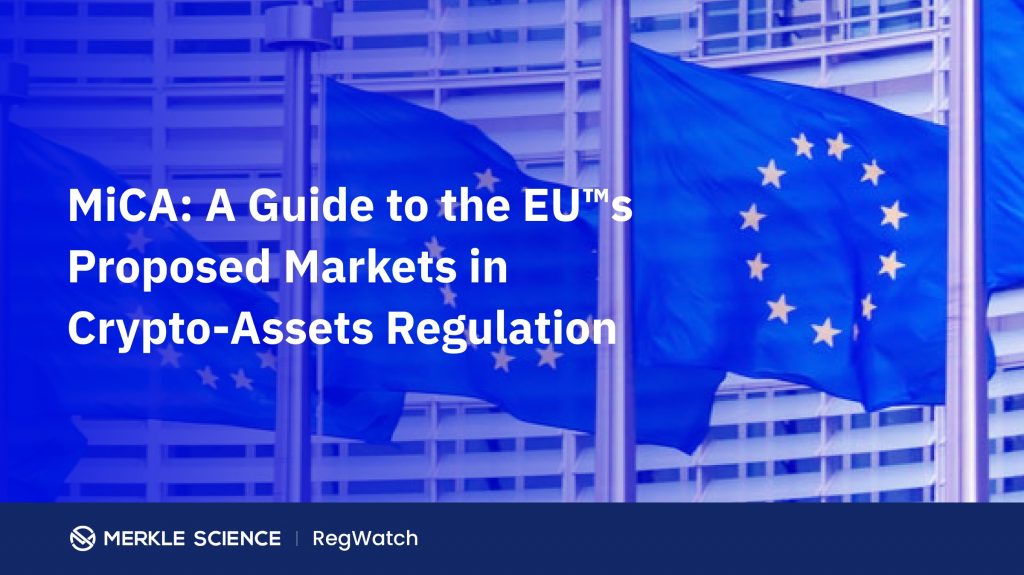MiCA regulation
The increasing importance of the cryptocurrency market, the EU has not yet had a unified surveillance regime. Although some EU member states have created their own sets of rules to regulate cryptocurrency markets according to AMLD5 6, they are very different. As a result, there is no single playing field between E countries, no single consumer protection, and technology cannot develop full economies of scale in such heterogeneous ways medium. Thus, the objective of MiCA is to create a single set rules in the EC for dealing with crypto assets, which covers both the provision of relevant services and the regulation of products. This also includes measures to prevent abuse of the market and consumer protection aspects of service provider clients cryptographer).

The main features of MiCA regulation
To achieve these goals, must MiCA apply to all individuals, legal entities and other companies that issue crypto-assets, publicly offer them trading plaques or offer other services, linked related to crypto assets, is subject to the new MiSA regime in the EU.

Cryptocurrencies that are unique and non-reciprocal, such as NTF, are excluded under MiCA. However, the discussion will continue as the NFT proposed by large series are likely to be interchangeable and therefore, in the case of a corresponding low set threshold, the NFT may also be subject to the MiCA regulation.

Market regulation cryptocurrencies MiCA provisions
With the introduction of the MiCA regulation regime in the EU, essentially three types of crypto-assets will be identified. These are value-based tokens (ART 9), electronic money tokens (EMT 10), and crypto assets other than tokens tied to value and electronic money. Thus, electronic money tokens are cryptocurrencies that must have a stable value by referring to the official currency (This is the official currency of the country issued. Central bank or other body of monetary regulation). In contrast, value-linked tokens are those that are not electronic money tokens and have a stable value by reference to any other value, right or combination thereof, including one or more currencies.
Procedure MiCA regulation
In addition to regulation of crypto markets in Europe, MiCA regulates the provision of crypto services. Following the MiFID definitions, MiCA regulates the following services:
- Store and manage crypto assets for clients.
- Control the Crypto Platform.
- Cryptocurrency exchange for fiat/other cryptocurrency.
- Execute orders related to virtual assets for clients.
- Transfer of crypto assets to other persons.
- Receipt and transmission of orders for virtual assets for third parties.
- Provision of portfolio management services.
Not surprisingly, already regulated banks, financial service providers, central securities depositories, trading-floor operators, electronic money institutions, and fund managers do not need a new cryptocurrency license, if they want to provide the above-mentioned crypto services to the extent that they have provided them with the previous license. To obtain a crypto license in the EU, they only need to inform the regulator of the country in advance. The new license requirement applies only to companies that do not yet have a licence and that want only provide services related to crypto assets.
